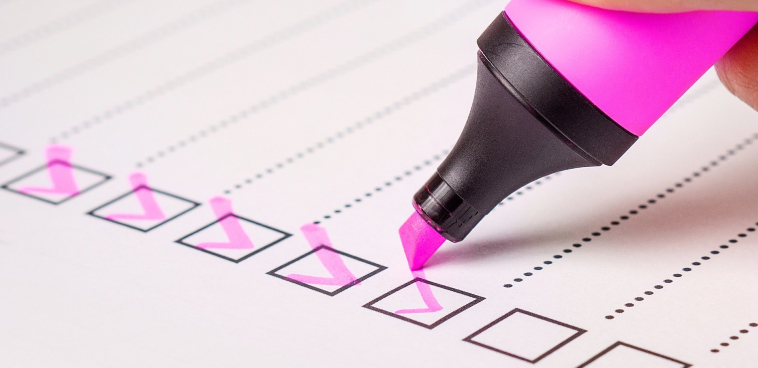Personal change is difficult.
Executive coaching helps individuals examine personal behaviors and finding ways to improve or eliminate them. People can shed behaviors that hold them back and adopt new ones that help them achieve their personal and professional goals.
Those of us in executive coaching like to say that coaching lessons continue long after the engagement ends. One reason is that individuals adapt to change and then make them a habit. The challenge is sustaining such behavior change.
Marshall Goldsmith, in his book “Triggers: Creating Behavior That Lasts,” focuses on ways of making change habitual through the adoption of habits.
“Just because people understand what to do doesn’t ensure that they will do it … Inside each of us are two separate personas. There’s the leader/planner/manager who plans to change his or her ways. And there’s the follower/doer/employee who must execute the plan.”
ProHabits, a consulting firm that specializes in personal change, has taken some of Goldsmith’s principles and combined them with additional research and practice, to create a platform for companies to enable their employees to commit to personal change. Specifically, as Goldsmith writes, “Structure not only increases our chance of success, it makes us more efficient at it.”
“People love to talk about personal change and development. They tend to take the first steps enthusiastically,” says Alan Fridman, founder, and CEO of ProHabits. “Organizations often inspire this sort of shift through a workshop, keynote, or town hall event. We view this as a ‘moment of elevation.'”
Fridman notes, “Of course, the moment of elevation soon fades the next day as the realities of everyday life sink in. Our environments lead us to return to our old habits. We find that people are likely to take personal growth actions much more when they have cues prompting them to take a small step forward. This is especially effective when there is a social element to the prompt as well.”
Toward that end, ProHabits provides bit-size bits of advice related to leadership, mindfulness, and personal growth, that users access twice a day. It is a form of feedback. The twice-daily reminders of what we must do and provides an avenue for us to do it. Habits, as described in ProHabits literature, are a combination of a cue (trigger), a behavior and a reward. The delivery system delivers the first two; the reward comes from accomplishment and both self and team recognition.
Positive change within individuals is vital to organizational health. “To navigate today’s challenges, workers need to have high levels of empathy, self-reflection, and cultural awareness. With technical skills and technology solutions becoming ubiquitous, what sets teams apart is the human element. For companies to remain competitive, it’s no longer enough to train technical skills — you have to inspire people to develop personally and interpersonally.”
There is pushback to a system that relies upon technology. “We tend to see two areas of resistance that stem from an initial misunderstanding of our tech,” says Fridman. “The first comes from the idea that we’re just another password to remember. People today are bogged down with applications — they have too many logins and passwords as it is, and they certainly don’t want another layer of complexity to deal with.” ProHabits requires no login; it’s an opt-in system sent directly to users via text or email.
The second kind of pushback to tech is personal. There is a “belief that daily personal growth actions are another ‘to-do’ on their already long list,” says Fridman. Such resistance dissipates over time, however. Users “say that engaging in their daily personal growth action helps them with their workload.”
More than 50 companies have adopted the ProHabits platform, and the results to date are impressive. Companies adopting the ProHabits platform report that 70% of employees use it. And 83% of that cohort commit and complete their daily habits.
Individual change comes from personal commitment. “Accepting is most valuable when we are powerless to make a difference,” writes Goldsmith. “Yet our ineffectuality is precisely the condition we are most loath to accept. It triggers our finest moments of counterproductive behavior.”
No technology will replace the inner desire to change; what technology can do is make the change more knowable, accessible and actionable.
John Baldoni is an internationally recognized leadership educator and executive coach. In 2018, Trust Across America honored him with a Lifetime Achievement Award in Trust. Also in 2018, Inc.com named Baldoni a Top 100 Leadership Speaker. In 2019, Global Gurus ranked him No. 9 on its list of top 30 global experts, a list he has been on since 2007. In 2014, Inc.com named Baldoni to its list of top 50 leadership experts. Baldoni is the author of 14 books, including“MOXIE: The Secret to Bold and Gutsy Leadership” and his newest, “GRACE: A Leader’s Guide to a Better Us.” Learn more about why he wrote “GRACE” in this short video.
If you enjoyed this article, sign up for SmartBrief’s free e-mails on leadership, career growth and HR, among SmartBrief’s more than 200 industry-focused newsletters.
